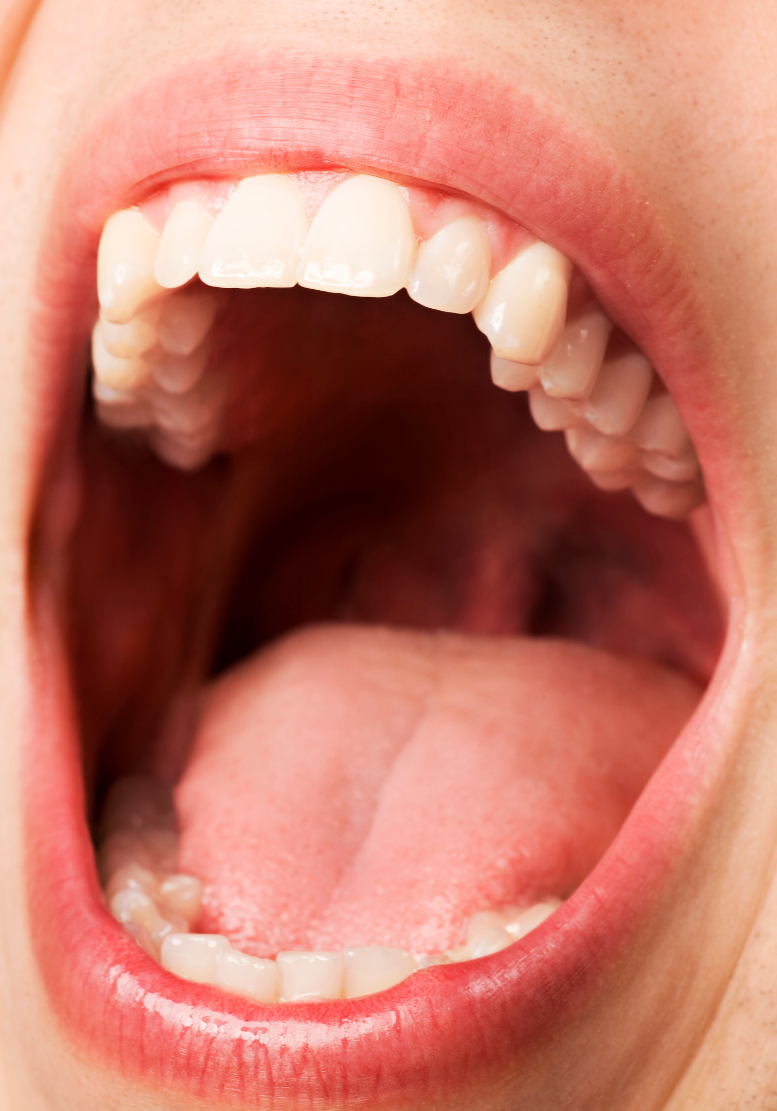Understanding and Managing Dry Mouth:
Causes, Symptoms, & Dry Mouth Remedies
Dealing with dry mouth can be incredibly uncomfortable and inconvenient. Whether it’s a constant sensation of dryness, difficulty swallowing, or a persistent feeling of thirst, this condition can affect daily life in significant ways. At our office, we often see patients struggling with this issue and understand the impact it can have on overall well-being. Read on for our expert advice on how to deal with this difficult condition.

Symptoms of Dry Mouth
Dry mouth, medically known as xerostomia, occurs when the salivary glands in the mouth don’t produce enough saliva. Saliva plays a crucial role in maintaining oral health by helping to neutralize acids, wash away food particles, and provide disease-fighting substances throughout the mouth. When saliva production decreases, it can lead to several uncomfortable symptoms, including a persistent dryness or sticky, thick feeling in the mouth; difficulty chewing, swallowing, or speaking due to a dry throat; and halitosis. Without adequate saliva to protect the teeth, the serious risks of cavities and gum disease increase.
Potential Causes of Dry Mouth
Dry mouth can result from a variety of factors, and understanding the underlying cause is essential for effective treatment. Some common causes include:
- Medications: Many prescription and over-the-counter medications list dry mouth as a side effect. This is especially common with antihistamines, decongestants, painkillers, diuretics, and certain medications used to treat high blood pressure, depression, and anxiety.
- Medical Conditions: Certain medical conditions, such as Sjögren’s syndrome, diabetes, stroke, and autoimmune diseases, can affect saliva production. Dry mouth can also occur as a side effect of radiation therapy for head and neck cancers, which can damage salivary glands.
- Dehydration: Not drinking enough water, excessive sweating, fever, vomiting, diarrhea, and blood loss can all lead to dehydration and subsequent dry mouth.
- Lifestyle Factors: Habits like smoking or chewing tobacco can affect saliva production. Alcohol and caffeine consumption can also contribute to dry mouth by dehydrating the body.
- Aging: As we age, our salivary glands may naturally produce less saliva, leading to dryness.
Science-Backed Dry Mouth Remedies
Fortunately, there are several effective dry mouth remedies available to help alleviate symptoms and improve quality of life. These remedies range from simple lifestyle changes to over-the-counter products designed to stimulate saliva production. Here are the top 6 we recommend to our patients.
- Stay Hydrated: Drinking plenty of water throughout the day is one of the simplest dry mouth remedies. Keeping a water bottle handy and taking regular sips can help keep the mouth moist.
- Chew Sugar-Free Gum or Suck on Sugar-Free Candies: These can help stimulate saliva flow. Look for products containing xylitol, which not only helps increase saliva but also reduces the risk of cavities.
- Use Saliva Substitutes: Over-the-counter saliva substitutes, available as sprays, gels, or lozenges, can provide relief by mimicking natural saliva.
- Avoid Dehydrating Substances: Limit the intake of caffeine and alcohol, which can exacerbate dryness. Similarly, avoiding tobacco products is crucial, as they can further decrease saliva production.
- Opt for Alcohol-Free Mouthwashes: Many commercial mouthwashes contain alcohol, which can be drying. Instead, choose alcohol-free options designed specifically for dry mouth.
- Humidify Your Environment: Using a humidifier in your home, especially in your bedroom at night, can add moisture to the air and help alleviate symptoms.
If you suspect that your medications are causing dry mouth, speak with your healthcare provider. They may be able to adjust your dosage or suggest an alternative medication. Additionally, regular dental check-ups are crucial for monitoring oral health and managing symptoms.
Living with dry mouth can be challenging, but understanding the causes and symptoms can help you find effective dry mouth remedies. Whether it’s making simple lifestyle changes, using specialized products, or consulting with healthcare professionals, there are numerous ways to manage and alleviate the discomfort associated with this condition. If you’re struggling with dry mouth, don’t hesitate to reach out to our office. We’re here to help you find the best solutions for your oral health needs.
